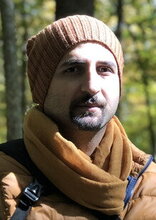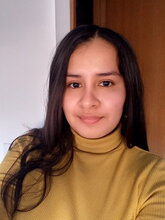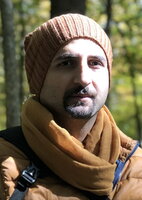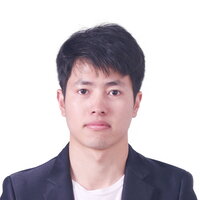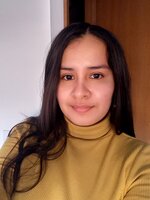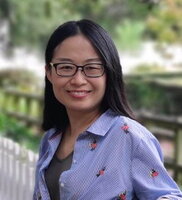We would like to welcome new faculty members for whom Spring is their first semester. Let's meet these new additions to the department!
Jonathan Dunn (Associate Professor)
Tell us a little bit about yourself
I am a computational linguist. To me, that means using computational models to conduct corpus-based experiments. I’ve been working in syntax (e.g., grammar induction, parsing models, representations) and sociolinguistics (e.g., geographic variation, register differences, demographic skew in models). Part of my goal is to use computational models as a better means of observing language use. But another goal is to make sure that language technology represents the languages/dialects that people actually use!
What are you looking forward to working on at UIUC?
I’ve been having fun recently with global-scale models of how exposure to new languages/dialects leads to syntactic variation. I like to think of this as a dialect survey, but with no limit on the number of participants or the number of features. I also recently received a grant to study how machine-assistance changes written production. So, does contact with machine-generated language cause the loss of individual and dialectal differences? I think this is an important question because we’ve embraced generative AI without knowing whether it will lead to a further decline in linguistic diversity.
Aleksandre Maskharashvili (Assistant Professor)
Tell us a little bit about yourself
I’m from Georgia, a country in the Caucasus region—home to many linguistically isolate, indigenous languages and language families, which is why it is sometimes called a "Mountain of Languages." I started my journey in Computational Linguistics (CL) as an undergraduate student of mathematics, when I met Prof. Konstantine Pkhakadze during my freshman year as he talked about the upcoming era of "thinking machines" which could think and communicate using natural language. He argued that to build a machine that would understand and speak Georgian, it was necessary to design formal, mathematical theories for the Georgian language. This was the turning point for me to decide to pursue my career in CL.
What are you looking forward to working on at UIUC?
My research is a synergy of symbolic, logic-based and neural-network based approaches to natural language. Given the strengths of each of these paradigms, it becomes crucially important to explore ways in which we can combine them for the best outcomes. While system performance is undoubtedly a key metric, I hold the competence of a system in equal regard. To me, maintaining an alignment between the underlying theories of designed systems and natural language is essential in language modelling. All this is a huge challenge, but so are its implications. Being a part of the vibrant and diverse environment of the Department of Linguistics of the University of Illinois at Urbana-Champaign presents an excellent opportunity for me to collaborate with my colleagues and students to collectively address this formidable challenge from many angles and perspectives.
Shaohua Fang (Visiting Assistant Professor)
Tell us a little bit about yourself
I am Shaohua Fang, joining as a Visiting Assistant Professor in the Department of Linguistics at UIUC. I hold a Ph.D. in Linguistics from the University of Pittsburgh, with a research focus on psycholinguistics, second language acquisition, and quantitative research methods. This Spring, I am excited to teach courses in both general linguistics and psycholinguistics. Outside of academia, I enjoy reading and exploring new places.
What are you looking forward to working on at UIUC?
At UIUC, I value the vibrant community committed to innovation and diversity. I am eager to continue my research on linguistic and psycholinguistic influences in language acquisition and processing among native and non-native speakers. I look forward to inspiring my students with the intriguing elements of linguistics in the classes I teach.
Rosana Gómez (Lecturer)
Tell us a little bit about yourself
I enrolled at UIUC in the Fall of 2021 to pursue my MA in Teaching English as a Second Language. During this time, I worked as a graduate assistant for the ESL department, where I had the chance to teach academic writing to undergraduate students, collaborate on curriculum development projects, and mentor writing instructors.
Prior to this, I taught English for General Purposes to adults and teenagers in Colombia for over two years after obtaining my BA in Teaching English and French as Second Languages.
What are you looking forward to working on at UIUC?
As a writing instructor, I look forward to exploring different teaching approaches and tools to offer students lessons tailored to their evolving needs. Furthermore, I’m excited to contribute to the writing curricula under the guidance of so many experienced and devoted lecturers.
Lin Chen (Affiliated Faculty)
Tell us a little bit about yourself
I received my Ph.D. in Psychology from South China Normal University. Prior to joining UIUC, I worked as a research associate at the Learning Research and Development Center at the University of Pittsburgh and held a faculty position at Sun Yat-sen University, China. Reading plays a crucial role in knowledge acquisition. My research broadly focuses on understanding the cognitive processes underlying reading comprehension. A primary goal of my work is to improve reading education for both first and second language learners by gaining a better understanding of the cognitive processes that drive language comprehension and the causes of reading difficulty. To achieve this, I use a combination of EEG, eye tracking, behavioral measures, and computational methods.
What are you looking forward to working on with the UIUC Linguistics Department?
I look forward to working with the excellent faculty and students at the Linguistics Department. I know there is a great team working on second language acquisition and psycholinguistics, and I’m eager to work with them. As part of my work involves using computational language models to understand human reading, I also look forward to collaborating with people who share the same interests.

